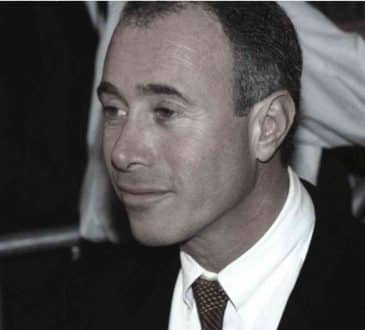How the Stages of Grief Play Out in the Workplace

Everyone is familiar with the commonly accepted Kubler-Ross model of the five stages of grief: Denial, Anger, Bargaining, Depression, and Acceptance. There has been a lot written lately about how this model plays out in real-life scenarios, and I think its application is misunderstood.
As someone who engages grieving people daily, and is currently leading a professional organization through societal situations that our generation has never experienced, I can tell you in no uncertain terms, the five stages most definitely apply. In her model, Elizabeth Kubler-Ross clearly describes the behaviors an emotionally traumatized employee will exhibit in each stage of grief—behaviors that any leader can observe. But where leaders get confused is in the assumption that this five-stage process is always linear. It’s not. The journey through grief is not a path we walk, but rather an ocean of emotional vulnerability in which we are tossed around. A grieving person will often bounce between stages from one week, one day, and one minute to the next. A grieving employee needs to be engaged…frequently.
The impact of grieving employees on a business can be staggering. Affecting morale, teamwork, and performance, grief in the workplace costs companies nationwide many billions of dollars in lost productivity each year.
Denial tends to manifest itself in a lack of concentration and an inability to focus. A certain “numbness” accompanies this emotional state, and it is noticeable in those blank stares, frozen gazes, and moments of what appears to be daydreaming. It is a fluctuating state of non-productivity when the brain suddenly shuts down and forces a person to sit silently, staring off into space, overwhelmed by their situation. In the realm of manufacturing or transportation, it can be outright hazardous to the grieving person and may even subject those around them to very real and imminent danger. This phenomenon of our brain trying to cope with trauma is not to be underestimated. This phase will create liabilities on even the smallest levels, as simple details slide under the radar. E-mails may get miscommunicated, data-rich reports get botched, and basic safety protocols get overlooked. An associate in a state of denial needs to be deliberately monitored with care, compassion, and concern, and their work reviewed.
Anger is one of the more apparent stages. It shows its face in the overall “mood” of a person, which may not be hostile, but is definitely not cordial and may be outright antisocial. They may disagree with everything presented to them, become pessimistic about things they loved just yesterday, or may be silent when they are usually very outspoken and collaborative. Generally speaking, “space” is what this person needs, but it depends on their personality. Some people can communicate their way out of anger, if you’re just willing to let them vent to you. A good leader can listen with the intent of learning, rather than attempting to inject their advice.
Bargaining is a unique phase that often teeters back and forth between emotions of slight sadness and utter desperation. A person in this phase would give about anything to reverse the course they are on. They are questioning every decision they made that could have possibly contributed to the situation. This person needs support and reassurance that they are not at fault, and this requires honest conversations that you should encourage, not cower from.
Depression is a phase that comes and goes with each new moment. It can be triggered by the most unlikely of sources. Much can be said about depression, but from a leadership perspective, you should know that this can manifest itself in any of the ways mentioned above. It’s complicated and challenging to overcome. A depressed associate needs all of your attention to detail with some added assistance, guidance, engagement, and follow-up. Never underestimate the burden of depression and be aware that a sudden disappearance of depression can indicate an unhealthy danger lurking beneath the surface. Don’t attempt to counsel anything beyond mild depression at work. It’s out of our realm as business leaders and requires professional help.
And lastly, we come to Acceptance. The key to this phase is the question, “Is it real or not?” Often, it is momentary. Acceptance is the phase that will come and go most frequently, resulting in a person who seems back to normal in one moment and lost again in the next. Acceptance may be temporary and requires your active engagement to determine the permanence of its nature.
So, let’s review:
- An emotionally distraught employee needs to be engaged…frequently.
- An associate in a state of denial needs to be deliberately monitored, and their work double-checked.
- A good leader can listen to an angry associate with the intent of learning, rather than attempting to inject their advice.
- A person in the bargaining phase needs support and encouragement that comes from honest, open, and emotional conversations.
- A depressed associate needs lots of follow-up, and the depth of their despair closely monitored.
- Don’t be fooled: Acceptance may be temporary and requires your active engagement to determine the permanence of its nature.
Being aware of the signs is the easy part of the battle against lost productivity in the workplace. The hard part is having the courage to engage a person exhibiting signs of emotional trauma and empowering them with the confidence they need to discuss their circumstances. True leaders do not back away from this and know that communication is the most important step toward overcoming these issues and genuinely helping the team work through their problems and excel at work. If you can step outside your comfort zone and address these issues head-on, the results will be more confident associates who feel safe and cared for by their employer, and who perform better under duress of any kind.
Commentary by Guy Casablanca. Here’s what you’ve missed?
World’s Best Countries For Investment In E-commerce And Digital Sector.
World’s Best Countries In Which To Start A Career.
World’s Most Expensive Countries To Live In.
Add CEOWORLD magazine to your Google News feed.
Follow CEOWORLD magazine headlines on: Google News, LinkedIn, Twitter, and Facebook.
This report/news/ranking/statistics has been prepared only for general guidance on matters of interest and does not constitute professional advice. You should not act upon the information contained in this publication without obtaining specific professional advice. No representation or warranty (express or implied) is given as to the accuracy or completeness of the information contained in this publication, and, to the extent permitted by law, CEOWORLD magazine does not accept or assume any liability, responsibility or duty of care for any consequences of you or anyone else acting, or refraining to act, in reliance on the information contained in this publication or for any decision based on it.
Copyright 2024 The CEOWORLD magazine. All rights reserved. This material (and any extract from it) must not be copied, redistributed or placed on any website, without CEOWORLD magazine' prior written consent. For media queries, please contact: info@ceoworld.biz
SUBSCRIBE NEWSLETTER








